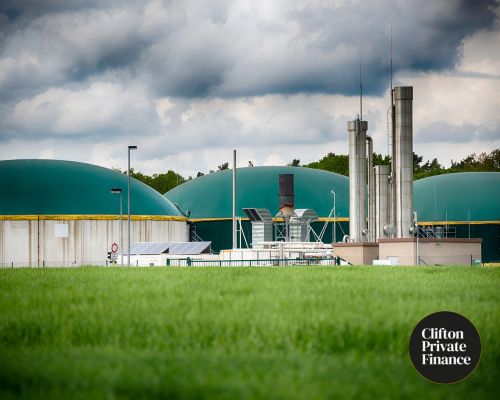Battery Storage Systems for Businesses
Businesses in the UK have access to a variety of battery storage technologies that can be financed or installed as assets:
Lithium-ion Batteries: These rechargeable batteries are commonly used in electric vehicles and are known for their high energy density, making them suitable for commercial and industrial applications.
Lead-acid Batteries: While not as energy-dense as lithium-ion batteries, lead-acid batteries are a cost-effective option for short-term energy storage needs.
Flow Batteries: These batteries store energy in liquid electrolyte solutions, offering a long lifespan and the ability to store large amounts of energy.4
Sodium-ion Batteries: Emerging as a potentially safer and more affordable alternative to lithium-ion batteries, sodium-ion batteries are gaining traction in the energy storage market.
Types of Finance Available for Battery Storage Systems
In the UK, businesses have access to various financing options when it comes to acquiring battery storage systems:
Hire Purchase: This option allows for the purchase of battery storage systems through an initial deposit followed by fixed monthly instalments. Once all payments are made, ownership is transferred to the business. It's an ideal choice for those aiming to eventually own the system outright and benefit from potential tax advantages.
Finance Lease: Under a finance lease, businesses pay monthly rentals for the use of the battery storage system. At the lease's conclusion, there's the flexibility to purchase the system at a predetermined residual value, extend the lease, or return the equipment. This option is well-suited for businesses that prefer not to bear the costs related to maintenance and future system upgrades.
Operating Lease: Typically used for short-term requirements or project-based installations, an operating lease offers considerable flexibility. The business pays for the use of the battery storage system, and upon the lease's expiry, the equipment is returned to the lessor. This can be advantageous for businesses with temporary energy needs or those evaluating the viability of battery storage before committing to a long-term investment.
Each financing option presents distinct benefits and can be tailored to fit the specific needs of a business, ensuring a smooth and economically feasible integration of battery storage into their operations.
Government Support and Initiatives
The UK government recognises the importance of energy storage technologies in achieving its renewable energy goals and has introduced several initiatives to support businesses investing in battery storage systems:
Industrial Energy Transformation Fund (IETF): This fund provides financial support for energy efficiency and decarbonisation projects, including battery storage installations, helping businesses reduce their energy costs and carbon emissions.
Faraday Battery Challenge: This initiative aims to boost the UK's position in the global battery technology market by funding research and development projects, as well as supporting the scale-up of battery manufacturing capabilities.
Smart Export Guarantee (SEG): The SEG requires licensed electricity suppliers to offer a tariff and make payment to small-scale low-carbon generators for the electricity they export to the grid, making it financially viable for businesses to install battery storage systems alongside renewable energy sources like solar PV.
These government programs and initiatives can further enhance the financial viability of battery storage investments for businesses in the UK. Stay updated on the latest developments and eligibility criteria to maximise the potential benefits of your project.
How Does Battery Storage Finance Work?
Securing finance for battery storage system installations involves a straightforward process similar to other types of asset finance. At Clifton Private Finance, we specialise in providing tailored finance solutions for energy storage systems, ensuring a streamlined and efficient experience:
- Initial Consultation:
We begin with a detailed discussion about your specific requirements for battery storage system installations. This includes assessing the scale of the project, the expected energy storage capacity, and your overall goals for integrating energy storage solutions. - Site Assessment:
Our team will evaluate your business premises or proposed installation site to determine the feasibility and optimal configuration of the battery storage system. - System Design:
Based on the site assessment, we'll work with you to design a battery storage system that meets your energy needs and budget requirements. - Credit Assessment:
Lenders will review your financial history, income, and cash flow to ascertain your eligibility for finance. - Quotation and Terms:
Following the assessment, you will receive a comprehensive quotation that outlines the borrowing amount, repayment schedule, and any applicable interest rates or fees. - Documentation:
To support your application, you will need to provide the necessary documents, which may include identification, proof of address, and financial records. - Approval and Agreement:
Once approved, you will enter into an agreement with the lender, specifying the monthly payments, the terms of the finance, and your responsibilities regarding the system's maintenance and insurance. - Installation:
The procurement and installation of the battery storage system will then proceed, carried out by qualified professionals. - Ongoing Responsibilities:
As the owner or lessee of the battery storage system, you will be responsible for its insurance, upkeep, and any repairs. It is essential to adhere to the agreement's terms and promptly communicate any changes in circumstances to us.
Costs and Considerations for Battery Storage Systems
The cost of installing a battery storage system can vary significantly depending on several factors, including the system size, the type of battery technology used, and any additional components required. However, as a general guideline, here are some indicative cost ranges:
Small-Scale Systems: Suitable for small businesses or commercial premises with limited space, these systems can range from £10,000 to £50,000.
Medium-Scale Systems: Ideal for larger businesses, office buildings, or industrial facilities, medium-scale systems may cost between £50,000 and £200,000.
Large-Scale Installations: Designed for sizeable commercial or industrial operations with extensive energy storage needs, these installations can represent significant investments, with costs ranging from £200,000 to £1,000,000 or more.
In addition to the upfront costs, it's crucial to consider factors such as site preparation, electrical work, permits and approvals, and ongoing maintenance when budgeting for a battery storage system installation. However, the long-term savings on energy bills and potential revenue from participating in grid services or energy arbitrage can offset these initial investments over time.
Benefits of Battery Storage Finance
Financing your battery storage system installation offers numerous advantages, including:
- Improved Cash Flow: By spreading the costs over time, you can avoid substantial upfront expenditures and preserve your working capital for other business needs.
Access to Tax Benefits: Certain finance options, such as hire purchase agreements, may allow you to claim capital allowances and potentially reduce your tax liabilities. - Future-Proofing Your Business: Investing in battery storage helps future-proof your business against rising energy costs and potential grid instability, contributing to long-term sustainability.
- Increased Property Value: Battery storage system installations can enhance the value of your commercial property, making it more attractive to potential buyers or tenants.
- Environmental Responsibility: By integrating battery storage with renewable energy sources, you demonstrate your commitment to environmental stewardship, potentially boosting your brand reputation and appealing to eco-conscious customers.
- While battery storage finance offers numerous benefits, it's important to consider potential drawbacks, such as overall costs due to interest and fees, contractual obligations, and maintenance requirements.
- Our team at Clifton Private Finance will guide you through these considerations, ensuring you make informed decisions tailored to your specific needs and long-term goals.
How We Can Assist with Battery Storage Finance
Are you exploring finance options for your business's battery storage system installation? At Clifton Private Finance, we are committed to supporting businesses on their journey towards a more sustainable future. Our team of experts specialises in providing tailored financing solutions for energy storage projects, including a wide range of battery storage systems. Here's how we can help:
Assess Your Needs: We'll collaborate with you to evaluate your business's energy requirements and financial objectives related to battery storage finance.
Find the Right Fit: Our team of experts will navigate through various financing options to identify the one that aligns best with your financial situation and goals for integrating battery storage solutions.
Simplify the Process: We prioritise clarity and transparency, ensuring that you fully comprehend all aspects of the financing process, including costs and terms.
Once we've identified the optimal finance solution for your business, we will:
Source Competitive Rates: Utilise our extensive network to compare rates offered by different lenders, ensuring you access the most competitive financing options available.
Secure the Best Terms: Negotiate terms tailored to your specific circumstances, aiming to secure the most favorable terms for your battery storage finance.
Facilitate the Application: Guide you through each step of the application process, from initial consultation to final approval, ensuring a smooth and efficient experience.
Support Until Completion: Our commitment extends beyond approval; we'll provide ongoing support until the battery storage system is successfully financed and installed.
For expert assistance in financing your business's battery storage system installation in the UK, contact Clifton Private Finance.












